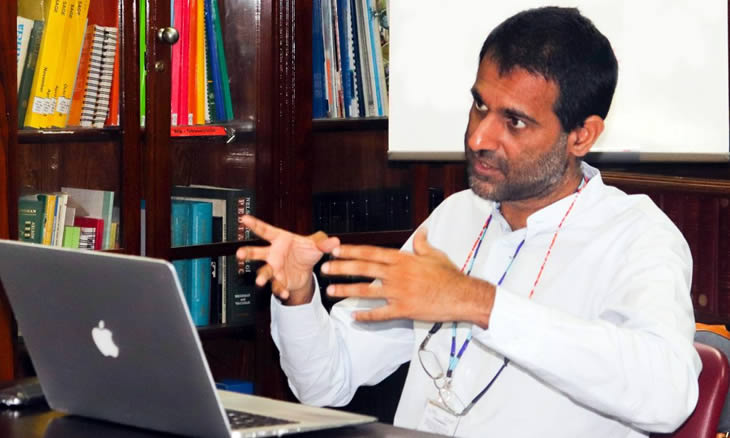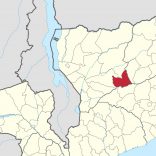Termination of allowances for Mozambican medical interns seems irreversible; the consequences ...
Mozambique plans to vaccinate 6.4 million by end of 2022

File photo: For illustration purposes only. [File photo: BBC]
The Mozambican government’s vaccination plan envisages vaccinating 6.4 million people from “priority groups” against the coronavirus that causes the Covd-19 respiratory disease by December 2022.
The plan, drawn up between the government and its international partners, has not yet been published, but the independent newssheet “Mediafax” has obtained a copy.
6.4 million is about 20 per cent of the entire Mozambican population. The National Statistics Institute (INE), based on projections from the 2017 census, estimates the current population at 30.8 million. But over half the population consists of children, who will not be vaccinated.
The top priority for vaccination are the country’s health professionals, and the plan estimates their number at 90,000 (considerably more than the 65,000 claimed in Thursday’s issue of the Maputo daily “Noticias”),
The 200,000 doses of the vaccine produced by the Chinese company Sinopharm, which arrived in Maputo on Wednesday, will be used to vaccinate the health workers. Since the vaccine should be administered in two doses, about three weeks apart, there should already be enough to vaccinate fully the health professionals.
The next consignment of vaccines to arrive will probably be from the Indian government. Foreign Minister Veronica Macamo said 100,000 doses of the Indian vaccine will arrive “shortly”, but did not give an exact date.
The bulk of the vaccines to be used will come from the Covax initiative, which is backed by the World Health Organisation (WHO). Six million doses of vaccine from Covax could arrive by May.
In addition to the health workers, the priority groups for vaccination include community health agents and health trainees, people aged 70 and above, and people suffering from other chronic illnesses (such as high blood pressure, asthma and chronic pulmonary disease). These groups are estimated to amount to three per cent of the population.
A second phase of vaccination will cover teachers, crèche workers, members of the defence and security forces, HIV-positive people, public transport workers, and people from other vulnerable groups. Taken together, these groups amount to an estimated 17 per cent of the population.
To ensure that the vaccination runs smoothly, the cold chain must be guaranteed. Refrigerated trucks must be available to pick up the vaccines from the airports in the provincial capitals and carry them to the districts.
Mozambique already has vast experience in vaccination campaigns, dating back to the years immediately after independence in 1975.
Interviewed in Friday’s issue of the independent daily “O Pais”, the director of the National Health Institute (INS), Ilesh Jani, pointed out that “vaccination technology is nothing new in Mozambique”.

“Our expanded vaccination programme covers the entire country, and we have an experience of four decades of working with vaccines”, said Jani. There would be some aspects specific to the Covid-19 vaccines, “but mostly this plan will include a series of elements that are normal in vaccines. In our country, over a million children are vaccinated every year. So vaccination is not a new technology”.
Transport logistics must be taken care of, said Jani, but that was true of any vaccine. One of the great advantages of the Sinopharm vaccine, he added, was that it does not need extremely low temperatures. It can be kept at between two and eight degrees centigrade, like many other vaccines already in use.
“The Ministry of Health has approved protocols and knows what to do when a vaccine arrives”, he said. “Every year millions of doses of other vaccines arrive in the country, and they go through the same procedures”.
The supply chain through which the Sinopharm vaccine will reach its beneficiaries, is exactly the same as the chain through which other vaccines reach the entire country every year. “Bear in mind that the Health Ministry’s supply chains handles about ten million doses of vaccines every year, and we are now talking about 200,000 doses”, said Jani.
“Questions of logistics and preparing the cold chain do not arise at this stage, because the number of vaccine doses is very small compared with the number the Ministry handles every year “, Jani stressed.
But he admitted that difficulties could arise later, with a great increase in the number of vaccines reaching the country.
“The country will need to strengthen its logistical and cold chain capacity, just as every other country on the planet is doing”, said Jani. “No country in the world was prepared for this added need to vaccinate a large part of its population, and particularly to cover target groups which are not normally reached by vaccination campaigns”.
As for using more than one type of vaccine to fight the same disease, Jani thought this was not a serious concern. “Most countries who have begun vaccination programmes will use more than one vaccine. I think Mozambique will have no alternative but to use more than one vaccine”.













Leave a Reply
Be the First to Comment!
You must be logged in to post a comment.
You must be logged in to post a comment.